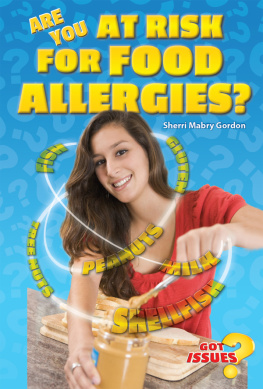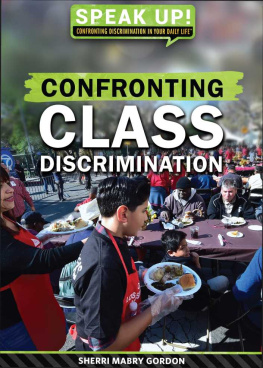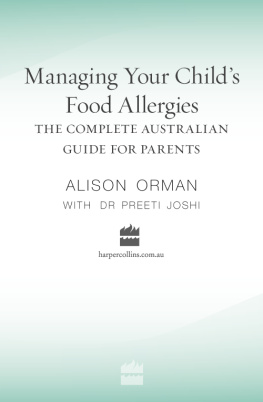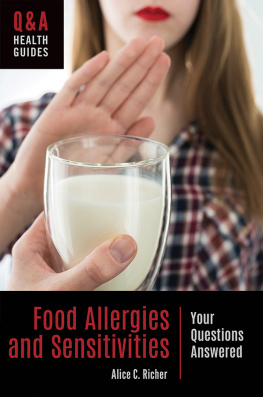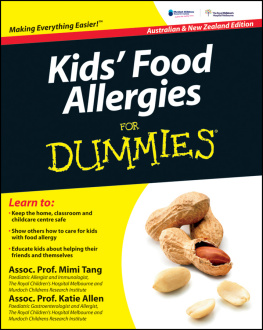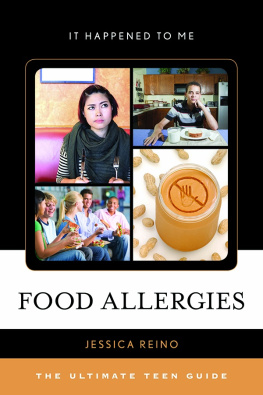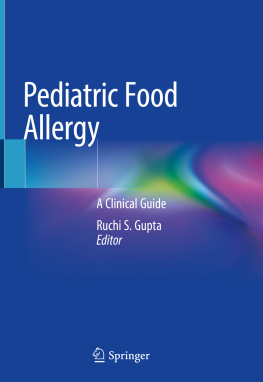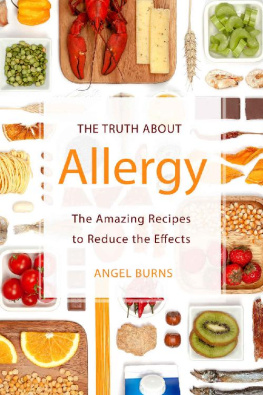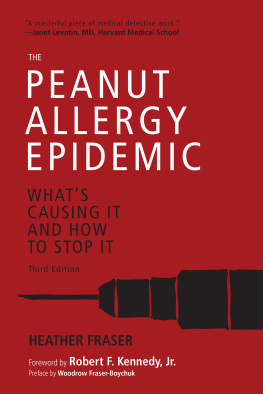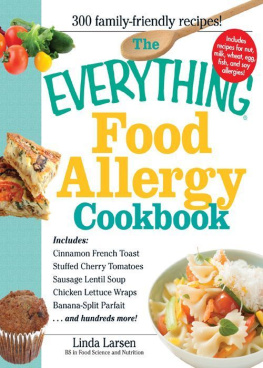IS IT SAFE TO EAT?
Imagine never being able to go to a restaurant, or eat dinner at a friend's house without worrying about what the food contains and whether it is safe for you to eat. For a person with food allergies, the most common foodssuch as milk, eggs, or peanut buttercan cause a life-threatening reaction. Find out how teens and their families cope with the problem, and what is being done to help.


Image Credit: Shutterstock.com Monkey Business Images
Michelle Risinger was a typical teenager. She loved listening to music and talking on the phone. She liked to hang out, had chores to do, and homework to complete. She even got grounded every now and then.
But there also was something unique about Michelle. She had food allergies (and she still does). Diagnosed when she was two years old with a life-threatening allergy to tree nuts, Michelle did not have her first serious reaction until she was twelve years old.
I got away without having any serious reactions, in large part because my parents were so overprotective, Michelle recalls. I had insignificant reactions, but I never actually ate a nut.
But when Michelle was twelve years old, her mother brought home a box of oatmeal raisin cookies from a party. The ingredients label did not mention nuts, so everyone assumed the cookies were safe for Michelle to eat. Although Michelles mother had told her that she could not have a cookie, as soon as her mother and her sister left to rent a movie, she ate one anyway. Michelle says:
My dad was upstairs at the time and as soon as the cookie was in my mouth, my throat instantly closed shut and I knew deep down that I was having a reaction. I definitely knew that something was wrong, but I was only twelve and I had never had a reaction like that before, and I was told not to eat the cookie. So, unfortunately, I waited about ten minutes before I went upstairs to get my dad and I was in a really bad way by that time.
Michelle says her eyes were completely swollen shut, her throat was closing, and she was burning up and itching like crazy:
What happens is your esophagus closes first and then your trachea starts to close. So my esophagus was completely squeezed shut. I was having trouble swallowing, and [my throat] scratched a lot. And then by the time I went upstairs to get my dad, I was having trouble breathing.
She told her father she had eaten a cookie and that there were no nuts listed in the ingredients, but something was very wrong and that they needed to call 911. She recalls:
We went back downstairs and I was having trouble thinking by then. I went and got my EpiPen [allergy medication injector] and he called 911 while I gave myself [a shot with] the EpiPen. I remember youre supposed to hold it in your thigh for ten seconds or so and I think I got up to about five and I couldnt remember the next number. I think I ended up holding it in for longer than ten seconds, because I couldnt remember the numbers that I had counted, and then I passed out on the floor.

Image Credit: Courtesy Michelle Risinger
For someone with food allergies, like Michelle Risinger, a simple mistake in choosing a snack can mean a trip to the emergency room.
While waiting on the front porch of her home for the emergency squad to arrive, Michelle was going in and out of consciousness. She says:
This will get my dad every time. I remember him looking down at me and I remember thinking this is probably the last time Im going to see him, and I made myself say, I love you, Dad. Then I completely passed out and I guess my dad thought that I had died.... I remember hearing my dads voice calling my name, and I remember coming back from that and thinking that he was calling my name to get up for school. As I was starting to refocus again, I remembered that we were out on the porch and then the porch came into focus. That was very bizarre. I mean, I was very close [to dying].
The paramedics later told Michelles parents that she had about a minute left before cardiac arrest when they arrived. And when her mother, who arrived just as the squad did, asked why they were not transporting Michelle, they replied that she was not stable yet and that they did not think they should move her. After finally arriving at the hospital, Michelle received three doses of epinephrine, lots of Benadryl, and prednisone and other steroids.
I was there for quite a while and it turns out that the cookie had walnuts in it and they were not listed on the ingredients, Michelle explains. So that was my first experience and by far the worst, mostly because I waited too long to get my dad.
Michelle attended American University in Washington, D.C. She was still a lot like other girls her ageshe liked clothes, worried about her grades, and planned for a future career. But having food allergies also matured her, making her responsible and levelheaded well beyond her years. Michelle explains:
It is definitely a big thing when you have your life in your hands at twelve years old, and it could have potentially been taken away. [I] gave myself the EpiPen that saved my life.... Your life really is in your hands. I [also] know what it feels like to have your life slipping away. I think [having food allergies] also made me strong and very independent, and independent minded. I have more experience [with the] potential consequences [of my actions] than my peers do. I feel like people want to experiment in high school and what not, and I sort of know what the consequences will be before I do anything. I feel like I am one step ahead of everybody else, because I think about what would happen in the end.
Imagine how you would feel if you suddenly began gasping for breath at a friends birthday party after taking just one bite of cake. That is exactly what might happen if you had food allergies and ate something you thought was safe.
Under normal circumstances, food usually does not cause a response like that, but with a true food allergy a persons immune system overreacts. (The immune system is the part of the body that protects it from infection, germs, and disease.) During an allergic response to food, ordinarily harmless foods like cows milk or peanuts are seen as invaders. The body mistakenly believes that it must protect itself from these foods and reacts. Unfortunately, this reaction harms the body rather than protects it.
In the United States, as many as 15 million people have true food allergies.
When food-allergic individuals come in contact with a food allergenthe protein in a particular food that causes an allergic reactionthey can experience everything from a tingling sensation in the mouth, to swelling of the tongue and throat, to difficulty breathing. They may also experience hives, vomiting, abdominal cramps, diarrhea, a drop in blood pressure, and loss of consciousness. If not treated, they can even die. Symptoms of a food allergy response typically appear within minutes to two hours after a person comes in contact with the food allergen.
People often think that a food intolerance is the same thing as a food allergy, but it is not. Food intolerance is a metabolic disorder and does not affect the immune system. (A metabolic disorder is a disturbance in the bodys ability to break down food.) Some people react to common food additives such as food coloring, preservatives, and flavorings. However, unlike food allergies, these reactions do not affect the immune system.

